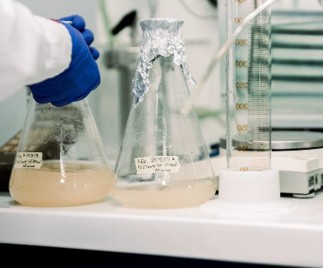A significant portion of t he environmental impact of chicken meat production arises from feed raw materials and additives, particularly for slow-growing strains, which require more feed to produce 1 kg of meat.
A sustainable solution lies in producing feed additives from agro-industrial byproducts, such as crude glycerol, a byproduct of biodiesel producing industries.
Certain Generally Recognized as Safe (GRAS) yeasts, such as Yarrowia lipolytica, can grow on these byproducts, which are not suitable for human consumption. After collection and drying, the yeasts serve as probiotics, reducing the overall environmental footprint of slow-growing broilers while avoiding competition with food production.
In addition to their sustainability benefits these probiotics improve gut health, enhancing broilers’ welfare. By leveraging circular economy byproducts, this approach aligns with waste reduction principles and resource efficiency, offering an eco-friendly way to lower the environmental impact of chicken production while promoting animal well-being.




